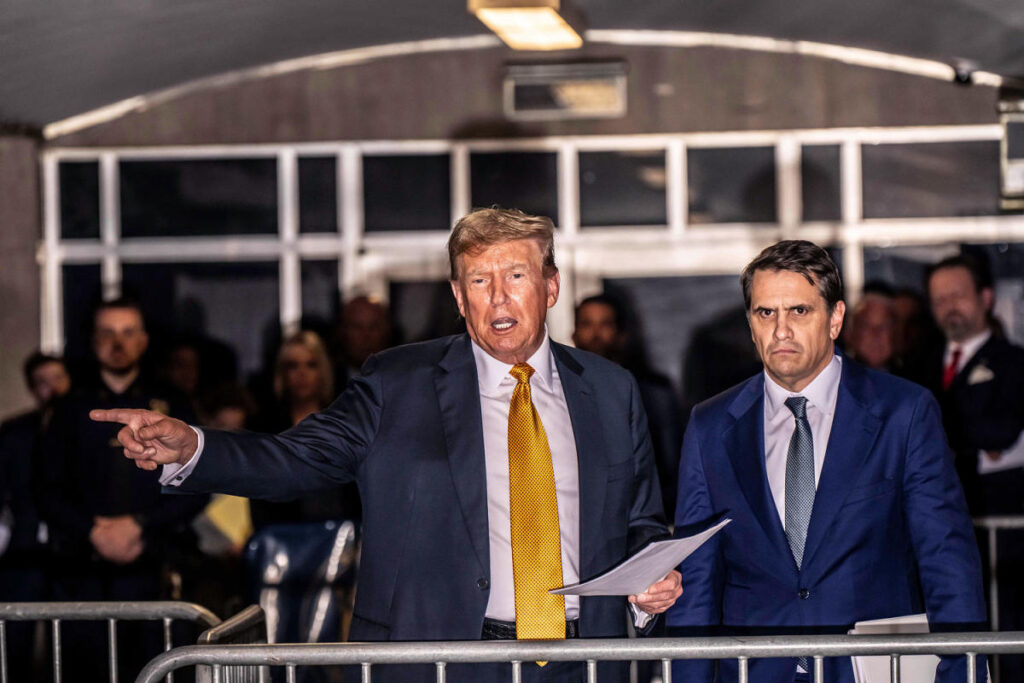In a significant legal development concerning President-elect Donald Trump’s criminal case in New York, Trump’s attorneys, Todd Blanche and Emil Bove, have presented allegations of serious juror misconduct that, they claim, compromised the integrity of the trial resulting in Trump’s conviction on 34 felony counts. In a letter dated December 3, recently made public, the attorneys argue that the misconduct constituted a violation of Trump’s rights under both the federal Constitution and New York law. The attorneys have indicated that their claims were sparked by communications from a juror involved in the case, although specific details of the alleged misconduct remain unclear due to extensive redactions in the submitted documentation. Trump’s legal team expressed confidence that a thorough investigation into their claims could change the course of the ongoing legal proceedings against him.
In response to these allegations, the Manhattan District Attorney’s office, led by DA Alvin Bragg, referred to the charges of juror misconduct as “vague” and inaccurate, suggesting that the summaries provided by Trump’s team misrepresented the situation. In a subsequent letter from the DA’s office, they highlighted the need for a more thorough and credible basis for such claims, dismissing the assertions as insufficient at this stage. Judge Juan Merchan also weighed in on the matter, highlighting that while allegations of juror misconduct warrant thorough investigation, the court cannot act on hearsay or unproven claims without formal sworn statements. Merchan emphasized that the standard for pursuing claims of juror misconduct requires substantiated evidence, pointing out that any motion seeking to set aside the verdict must be backed by sworn allegations.
The nature of the alleged misconduct is central to the ongoing litigation, with Trump’s legal team arguing that any such behavior renders the previous verdict unreliable. Trump’s attorneys urged the court to consider these elements as they deliberate on motions to dismiss the case against him. Yet, Merchan’s stance remained that he could not entertain such allegations without formal submissions meeting the criteria for evidence. Trump’s defense appeared hesitant about a hearing on the matter, referring to it as “invasive factfinding,” indicating a potential tactic to avoid a comprehensive examination of the claims raised.
Judge Merchan’s ruling against dismissing the conviction on presidential immunity grounds led Trump to publicly criticize the judge through his social media platform, Truth Social. Trump described the ruling as a “completely illegal psychotic order,” asserting that it disrespected the Supreme Court’s historical decisions regarding presidential immunity. Trump’s outburst highlights the contentious and politically charged atmosphere surrounding the case, further complicating the legal landscape in which these allegations of juror misconduct are being evaluated.
As the legal proceedings unfold, the implications of these new developments could have far-reaching consequences for Trump. He has one more substantial motion pending before the court that seeks to challenge the legitimacy of the charges against him. The interplay between the allegations of juror misconduct and ongoing motions to dismiss will continue as a focal point in the courtroom, potentially influencing the case’s trajectory as it navigates through complex legal principles and allegations of bias.
Overall, the discourse surrounding Trump’s case reflects broader themes of accountability, judicial integrity, and the intersection of politics and law, raising critical questions about the processes in place to ensure fair trials and the implications of alleged misconduct on judicial outcomes. As allegations are made and responses formulated, the outcome of Trump’s legal challenges could set significant precedents in the realm of criminal law and political accountability, shaping the future landscape of legal recourse for public figures.

